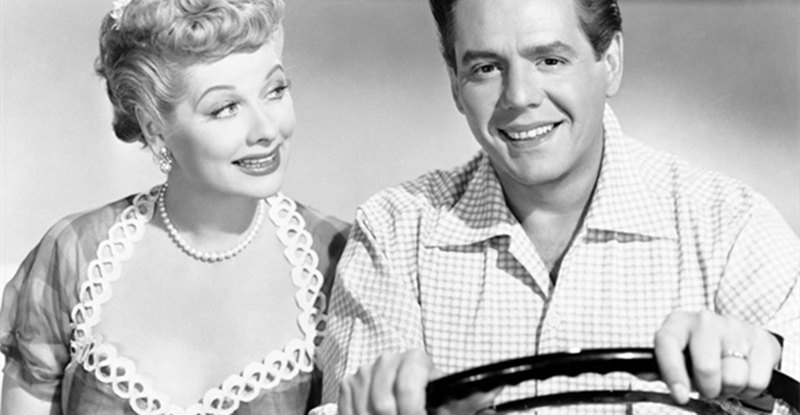“A Letter to Three Wives” begins where mysteries often end: with a gathering of “suspects.” Three society wives about to embark as volunteers on a boat excursion for underprivileged children are handed a letter penned by a mutual acquaintance—a woman named Addie whom their husbands have known for most of their lives, and who remains close to each of their hearts. Before each woman had come into her respective husband’s life, Addie was there. And she tells them now that she has run off with one of them, but doesn’t say which one. The bitch.
Some directors might have taken that premise and run all the way down Whodunit Lane.
But Joseph L. Mankiewicz (“All About Eve,” “Cleopatra,” “Guys and Dolls”) stays close to the book and plays it as straight drama, using it as a framework to tell the story of three less-than-perfect relationships.
“A Letter to Three Wives” (1949) is based on the John Klempner novel about FIVE women who receive a letter, but one of those wives was cut to streamline the story for the big screen, and then Anne Baxter’s segment was axed by Fox honcho Darryl F. Zanuck because the film was still coming in too long for contemporary audiences. That left Jeanne Crain as Deborah Bishop, Ann Sothern as Rita Phipps, and Linda Darnell as Lora Mae Hollingsway.
Like “Mad Men,” this film is rich with period detail because it IS period. Smoking was glamorous, and women held cigarettes with as much style as men. Martinis were the drink of choice, and people dressed for dinner . . . and just about everything else. Money was valued above all else, and women were thought to be the inferior sex. By men. As for the women, that’s another story. They knew the social landscape and they played the game, which we see in two of the flashbacks.
The classiest guy in this nameless burg in Smalltown, U.S.A. was a rich and cultivated fellow named Brad (Jeffrey Lynn), but this “catch” was caught by a farm girl whose “farmness” was camouflaged in the service. He was a sailor, she was a WAVE, and they fell in love. But now she’s having second thoughts about marrying a high-society gentleman and trying to fit in as his wife, especially with this perfect Addie in the background—which, by the way, is where she stays. Addie does the voiceover as cameras track down the street, talking about the place and the three women in a way that no doubt inspired Marc Cherry for his “Desperate Housewives” series.
Then there’s George (Kirk Douglas), who we’re told is a schoolteacher who’s not worth a dime, so poor Rita, who married him, has been ghostwriting stories for the radio soaps and earning more than her husband. Tension, much?
Bootstrap wealth is personified by Porter (Paul Douglas), who owns a chain of seven department stores and has been coming on to one of his employees, Lora Mae—who lives in a house next to the railroad tracks that shakes like hell every time a train passes. But she’s smart and, despite an age difference, plays him like the great catch that many in town think he is.
Those are the principals, and flashbacks for each woman show key moments that cause pause—enough for each one to think that maybe HER husband is the one who left town with Addie.
Everything is ‘50s proper, and crisp banter-style dialogue captures that. Mankiewicz won Oscars for both the screenplay and his direction. If this were a comedy it might be considered a comedy of manners, because it’s all about the social customs of an age—and all the actors do a fine job of bringing the age’s nuances to their characters.
“A Letter to Three Wives” is not rated, but would probably merit a PG rating for the constant smoking and drinking. The runtime is 103 minutes.
Video:
“Letter” comes to 50GB Blu-ray disc via an AVC/MPEG-4 encode that has a veneer as near-flawless as these high-society characters. Black levels are strong, and apart from the title sequence and some exterior shots the contrast is pleasing. Edge delineation is strong throughout, though I have to say there’s not as much implied depth as there is in the typical Blu-ray presentation. A thin, pleasing layer of film grain runs consistently throughout the film, which is presented in 1.33:1 aspect ratio.
Audio:
When the voiceover narration begins, I’m already turning up the volume because the DTS-HD MA English Mono feels really boxed in and restricted to a thin sound field directly in front of the center speaker. For the scenes themselves, the sonics expand slightly, and at a dance scene the front main speakers become more engaged. But this isn’t the sort of soundtrack that’s going to wow anyone. An additional option is English Dolby Digital 2.0, with subtitles in English SDH, Spanish, and French.
Extras:
Three wives, and three commentary participants: Mankiewicz’s son, edited in with “Letters” experts Kenneth Geist and Cheryl Lower—reveals his father’s battles with censors, among other things, which makes the track worth listening to. Other than that, there’s just a “Biography” special on “Linda Darnell: Fallen Angel,” the trailer, and a one-minute Fox Movietone News clip from the 22nd Annual Academy Awards. “Letters” had earned a Best Picture nomination, but lost to “All the King’s Men.”
Bottom line:
I’ve not read the book and so I can’t say whether it’s a flaw of the film, but because the letter is played without melodrama and because the flashback episodes don’t reveal anything toooffensive, Addie’s cruelty—her making each wife sweat it out (internally, of course, as was customary of the time) really seems unfounded. But that’s life in postwar America.


